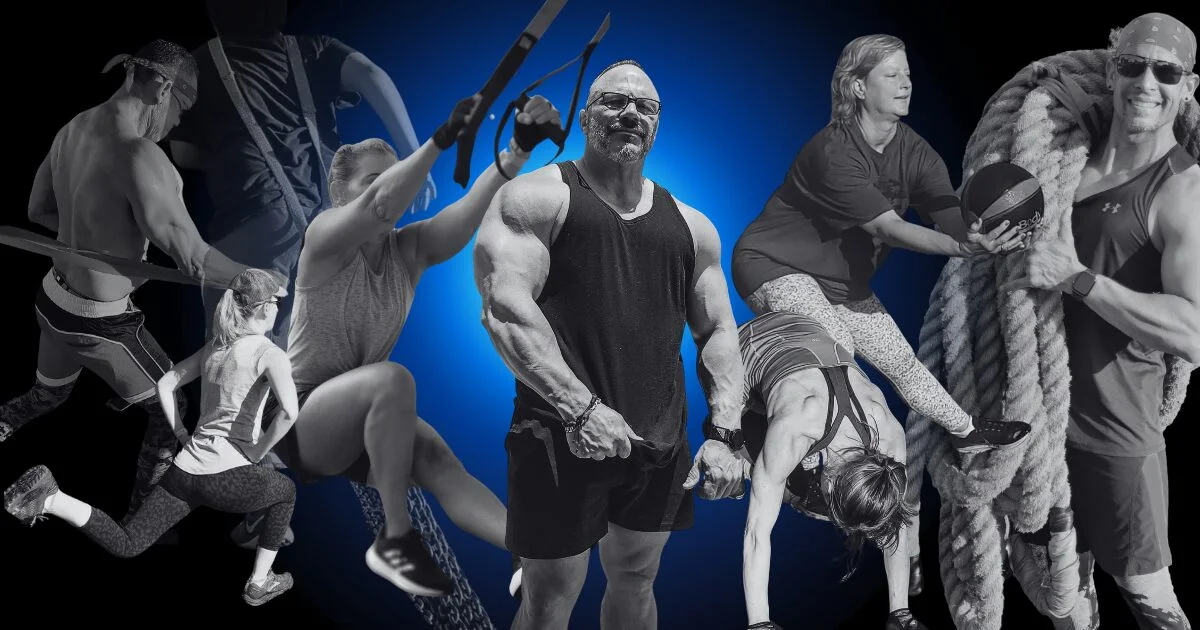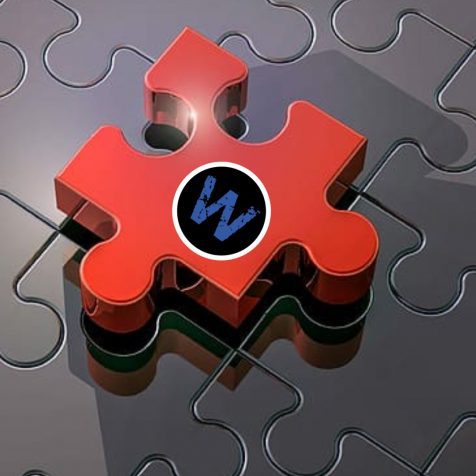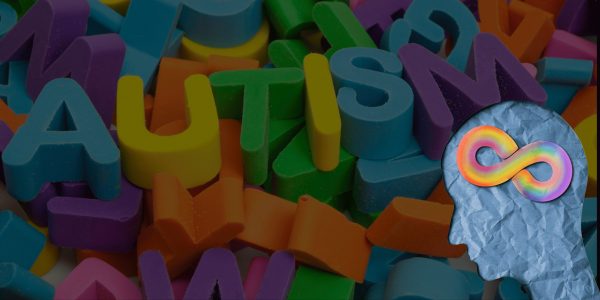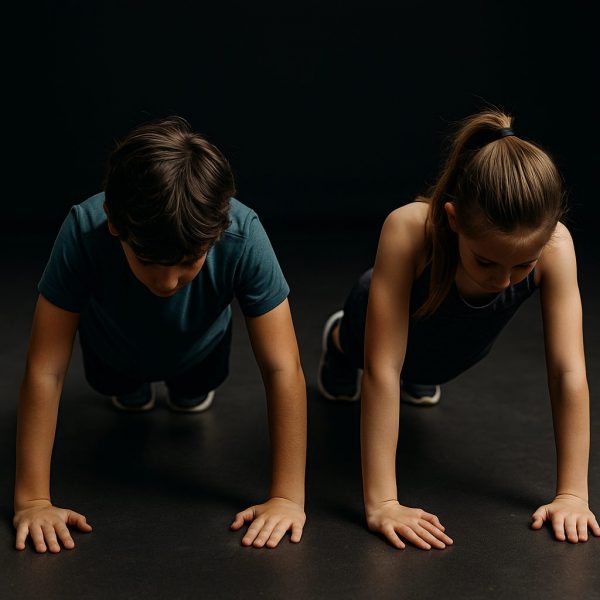
Strength training for autistic kids is one of the most effective ways to develop confidence, coordination, regulation, and physical resilience—especially for neurodiverse youth who struggle in traditional sports, busy gyms, or chaotic group settings. Many autistic and neurodiverse kids find typical fitness environments overwhelming, unpredictable, or socially demanding. They often need structured routines, sensory-aware coaching, and calm, predictable sessions to feel safe and capable.
That’s why specialized neurodiverse strength training is becoming a preferred choice for families seeking real, measurable progress. When it’s delivered correctly—with biomechanical precision, sensory awareness, and a developmental lens—strength training becomes far more than a workout. It becomes a pathway to motor development, emotional regulation, and lifelong confidence.
Wired Fitness SD delivers a unique combination of expertise, structure, and neurodiversity-informed coaching that cannot be found in standard programs or recreational activities.
Strength training works best when it’s predictable and progressive. Our structured strength training for neurodiverse kids emphasizes confidence, coordination, and safety.
Learn more about the neurodiverse youth program →
Autistic kids thrive with routine, clarity, and predictable progression. Strength training is built on those exact elements. Movements repeat consistently. Sessions follow a step-by-step structure. Progress can be measured clearly. The nervous system receives grounding, calming input. For parents who want a big-picture overview, this mirrors what autism specialists describe in an “expert overview on the benefits of exercise for children with autism,” highlighting improvements in motor skills, social engagement, and emotional well-being when movement becomes part of regular routine.
✔ Improved balance, coordination, and motor control
✔ Increased strength and functional movement skills
✔ More confidence in physical tasks and daily activities
✔ Better regulation during and after sessions
✔ Reduced frustration with movement-based challenges
🔹 A predictable structure that reduces anxiety
🔹 A calm training environment that supports sensory needs
🔹 Repetition that matches autistic learning styles
🔹 Measurable progress that builds self-belief
🔹 A sense of mastery that transfers into home and school
These qualities make strength training one of the most effective forms of exercise in any San Diego autism exercise program or adaptive strength program.
Executive function challenges—such as initiation, sequencing, working memory, and task completion—are common in autistic youth. Strength training reinforces those skills through controlled, step-by-step learning.
✔ Better attention during structured activities
✔ More consistent task initiation
✔ Increased ability to follow multi-step sequences
✔ Higher frustration tolerance
✔ Completion of challenges with confidence
🔹 Improved working memory for motor patterns
🔹 Greater independence during structured routines
🔹 Enhanced ability to shift tasks
🔹 A positive sense of achievement
🔹 Carryover improvements into academics and therapy
Neurodiverse strength training directly strengthens cognitive pathways that support daily functioning.

This program stands apart from general adaptive fitness or recreational classes. Strength training for autistic kids requires skill, education, and experience beyond traditional youth coaching. The approach at Wired Fitness SD also reflects international best practices; the National Strength and Conditioning Association’s “professional position statement on youth resistance training” confirms that well-designed strength training is both safe and highly beneficial for children and teens when properly supervised.
With more than 25 years of coaching experience, a Master’s degree in Exercise Science & Sports Performance, and decades of work with youth and special populations, we bring an unmatched level of professionalism to neurodiverse strength training. This is developmentally informed, sensory-aware strength coaching tailored to each child’s needs—delivered with precision.
✔ Sessions designed around biomechanics and safe progressions
✔ Consistent routines that autistic kids learn to trust
✔ Custom sensory and communication accommodations
✔ Complete adaptability for in-home, private gym, or small-group setups
✔ A calm, supportive coaching style that builds long-term confidence
🔹 No chaotic environments or unpredictable group settings
🔹 Clear expectations that reduce anxiety
🔹 Strategic use of proprioceptive input for regulation
🔹 Strength-based wins that build identity and pride
🔹 A deeper understanding of neurodiversity than typical youth coaches
This program stands apart from general adaptive fitness or recreational classes. Strength training for autistic kids requires skill, education, and experience beyond traditional youth coaching.
With more than 25 years of coaching experience, a Master’s degree in Exercise Science & Sports Performance, and decades of work with youth and special populations, we bring an unmatched level of professionalism to neurodiverse strength training. This is developmentally informed, sensory-aware strength coaching tailored to each child’s needs—delivered with precision.
✔ Sessions designed around biomechanics and safe progressions
✔ Consistent routines that autistic kids learn to trust
✔ Custom sensory and communication accommodations
✔ Complete adaptability for in-home, private gym, or small-group setups
✔ A calm, supportive coaching style that builds long-term confidence
🔹 No chaotic environments or unpredictable group settings
🔹 Clear expectations that reduce anxiety
🔹 Strategic use of proprioceptive input for regulation
🔹 Strength-based wins that build identity and pride
🔹 A deeper understanding of neurodiversity than typical youth coaches

Wired Fitness SD uses a predictable session flow that autistic kids quickly adapt to. Routines stay familiar, even as exercises progress.
This includes simple, low-stress movements to prepare the nervous system.
✔ Establishes comfort at the start of each session
✔ Prepares the body and mind without overstimulation
✔ Builds readiness for more demanding movements
🔹 Smoothes the transition from home or car into training
🔹 Reduces warm-up resistance
🔹 Reinforces session structure
This is the heart of the session. Movements such as goblet squats, deadlift patterns, pushing and pulling, TRX rows, and carries create strength and stability. These outcomes line up with a growing body of research on exercise for autistic children; one systematic review on exercise interventions for autistic children found meaningful improvements in motor skills, behavior, and overall functioning when movement is structured and consistent.
✔ Increased strength and posture
✔ Development of safe, repeatable movement patterns
✔ Improved motor planning and control
✔ More confidence in physical abilities
🔹 Deep-pressure sensory input
🔹 Stronger core activation
🔹 Better connection between body and mind
This builds coordination, balance, reaction timing, and confidence in movement challenges.
✔ Enhanced balance and timing
✔ Improved hand-eye coordination
✔ Greater comfort with new movements
🔹 Builds resilience through controlled challenges
🔹 Boosts motivation with attainable wins
This includes calm, controlled conditioning such as sled pulls, incline walking, or rope intervals.
✔ Improved endurance and physical capacity
✔ Increased energy and cardio fitness
🔹 Structural reinforcement for regulation
🔹 Better stamina for daily activities
Every session ends with breathing, mobility, and calming strategies.
✔ Reinforces emotional regulation
✔ Helps the body shift into a calmer state
✔ Smooth transition out of the session
🔹 Less likelihood of post-session dysregulation
🔹 Reinforced body awareness and grounding
Strength training is measurable and repeatable—two things that help neurodiverse kids succeed. This guide explains how to do it safely and progressively.
Read: Strength training for autistic kids →Strength training is especially helpful for autistic youth who struggle in noisy, chaotic, or fast-moving environments. Kids who find team sports overwhelming often respond extremely well to the structure and predictability of this training style. Many autistic children also experience differences in sensory processing, motor coordination, balance, or body awareness. These needs are supported naturally through strength movements because they provide grounding proprioceptive input and repeatable routines that feel safe and manageable.
It is also ideal for kids who thrive with one-on-one coaching, need clear communication, or benefit from calm environments with fewer unpredictable social demands. Children with low muscle tone, unstable posture, or difficulty with new physical tasks often show meaningful improvement quickly. Strength training becomes a supportive pathway for neurodiverse youth who need a stable foundation, structured expectations, and a coaching style that respects their pace and learning style.
Parents often see an early boost in confidence as kids become more willing to try new movements and show pride in their progress. Improvements in strength, balance, and coordination also become noticeable as everyday tasks—such as climbing stairs, stepping onto platforms, or navigating playground equipment—start to feel easier and more controlled. Many kids begin moving with more stability and appear more comfortable in their bodies.
Emotional regulation often improves as well. The calming, proprioceptive input from sessions helps the nervous system settle, making transitions smoother and reducing frustration during physical challenges. Parents regularly report fewer shutdowns, better focus during structured activities, and more resilience when learning new skills. Over time, children who once resisted physical activity begin to enjoy structured movement, creating a positive long-term relationship with exercise.
If your autistic or neurodiverse child struggles with coordination, confidence, or sensory challenges, specialized strength training can help them thrive. My individualized sessions are built to support movement skills, regulation, and self-belief—at their pace, in a calm, structured environment.
Yes. Strength training is extremely safe when exercises are controlled and adapted to each child’s sensory and physical needs. Movements are predictable, structured, and easy to scale based on confidence, posture, balance, and tolerance. Autistic kids often do better with slower progressions, repeated patterns, and calm coaching.
Ghost: strength training for autistic kids, autism strength training safety, San Diego autism exercise program.
No experience is required. Most autistic children benefit from learning movement patterns step-by-step without needing to unlearn previous habits. The training introduces posture, stability, and body awareness gradually so kids can build confidence and motor skills at a comfortable pace.
Ghost: beginner autism strength training, adaptive strength program for new athletes.
Most parents notice early improvements—such as smoother transitions, better focus, or more willingness to participate—within the first 4–6 weeks. Physical changes like coordination, balance, and strength typically become more obvious between 8–12 weeks with consistent practice.
Ghost: autism strength training results timeline, neurodiverse strength improvements.
Strength training is uniquely helpful for anxious autistic kids because sessions follow a predictable rhythm. Kids know what to expect every time—no chaos, no pressure, no surprises. The structured environment reduces fear and helps children feel more in control.
Ghost: autism anxiety during exercise, predictable routines autistic kids prefer.
Tools like dumbbells, resistance bands, weighted objects, TRX straps, stability pads, and sleds are used. These support controlled movement and provide grounding sensory input. Equipment is introduced slowly and only when the child feels ready and regulated.
Ghost: autism-friendly training equipment, sensory-safe tools neurodiverse workouts.
Yes. Many autistic children experience low muscle tone, and strength training is one of the best ways to improve it. Controlled resistance builds stronger postural muscles, enhances joint stability, and improves functional movement patterns used in daily activities.
Ghost: low muscle tone autism exercise, building tone with adaptive strength.
Strength training improves coordination by teaching movement patterns slowly, repetitively, and in manageable steps. Kids develop better body awareness, smoother transitions, and more stability—without rushing or competing with others.
Ghost: autism coordination training, balance development neurodiverse kids.
Yes. The training environment is kept quiet, predictable, and low-stimulation. Lights are soft, instructions are calm, and kids are offered breaks, deep-pressure options, or slower pacing as needed. Sensory accommodations are built into every session.
Ghost: sensory-friendly autism training, sensory-adapted strength exercises.
Yes. Strength movements produce proprioceptive input, which can calm the nervous system and support smoother transitions. Many children show improved mood stability, fewer meltdowns, and clearer self-regulation after consistent sessions.
Ghost: emotional regulation through exercise autism, proprioceptive benefits neurodiverse kids.
Absolutely. Strength training relies heavily on modeling, demonstration, and repetition—not verbal direction. Kids follow visual cues, clear gestures, and consistent patterns, making it accessible to all communication levels.
Ghost: nonverbal autism strength training, visual instruction neurodiverse kids.
Yes, when appropriate. Partner or sibling sessions can support social development, cooperation, and shared success. Groups remain extremely small to avoid overstimulation and allow individualized pacing.
Ghost: sibling autism exercise sessions, paired neurodiverse training.
Comfortable clothing, closed-toe shoes, and water are all that’s needed. Sensory comfort is a priority—children can train in whatever clothing feels best to them, including soft fabrics or specific textures they prefer.
Ghost: autism fitness clothing tips, sensory-friendly workout preparation.
Refusal is common and not a setback. Sessions can shift to lighter movements, exploration, or regulation work until the child is ready. Forcing participation is avoided; instead, pacing and choices help restore engagement naturally.
Ghost: adaptive pacing autism training, refusal support neurodiverse workouts.
If a meltdown or shutdown occurs, the session pivots immediately to safety and regulation. Breaks, deep-pressure input, quiet resets, or slower pacing help the child regain control before continuing or ending the session calmly.
Ghost: meltdown support autism training, shutdown management neurodiverse sessions.
Yes. Parents often see improvements in posture, stair climbing, playground skills, coordination, and overall independence. Strength training builds foundational motor abilities that directly support daily tasks and confidence.
Ghost: autism real-life strength improvements, functional movement neurodiverse kids.
Theme: Illdy. © Copyright 2016. All Rights Reserved.
